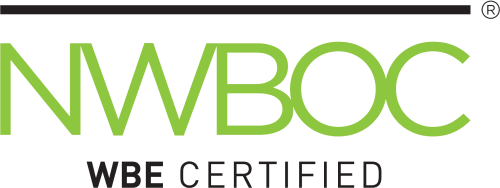New Eagle Hill Consulting research finds government employees recognize value of in-person work, but concerned about work-life balance and commutes
Arlington, Va., May 16, 2023 – Nearly half (45 percent) of government employees indicate they will consider looking for a new job should their agency reduce remote and hybrid work flexibility, new Eagle Hill Consulting research finds. These findings come on the heels of new federal government guidance that calls for a substantial increase in meaningful in-person work, along with unprecedented challenges filling government jobs.
The nationwide survey of government workers also finds that employees see the value of in-person work. More than half of government employees (54 percent) say those who work more in the office than remotely are more likely to be successful in their jobs. Eighty-five percent of workers say team building and integrating a new team member is managed better in person, as is managing teams (77 percent), onboarding (72 percent), training (72 percent), kicking off a new project (71 percent), getting a project back on track (70 percent), performance discussions (69 percent), giving and receiving feedback (64 percent), classified work (61 percent) and brainstorming (58 percent).
“Government leaders are on a tightrope when it comes to the new telework and organizational health guidance released by the Office of Management and Budget,” said Melissa Jezior, president and chief executive officer of Eagle Hill Consulting. “While the guidance recognizes the need to balance organizational productivity and worker retention, crafting new Work Environment Plans will be complicated. Our research suggests that approaches to remote and hybrid government work must be nuanced and there is common ground.”
Read Eagle Hill’s new guide for federal agencies, Navigating OMB’s New Organizational Health Guidance.
“Government employees know that some work is best accomplished in-person, especially work that requires collaboration or is classified. But government employees don’t want in-person mandates because of concerns about work-life balance and commuting time. This means government leaders will need to focus on flexibility – perhaps allowing remote work for individualized tasks, re-imagining traditional work schedules, and having collaborative time in the workplace. The research is clear that most government employees want a certain degree of in-person work, but they don’t like rigid rules on how they work. In the end, agencies that best navigate remote work will have a high level of trust between employees and managers, an environment that fosters good communication, and effective processes for managing performance outcomes,” Jezior said.
The research also finds:
- Fifty-nine percent of remote and hybrid government workers say their job satisfaction would decrease if their employer mandated a return to in-person work, and 44 percent say their productivity would decrease with such a requirement. Forty-five percent say a mandate would decrease how long they will stay with their current employer.
- More than half of government employees (53 percent) prefer to work with an organization that offers hybrid and remote work flexibility.
- Government employee concerns about more in-person work include work/life balance (45 percent), commute times (43 percent), higher costs (38 percent), and stress (34 percent).
- Work that is better achieved remotely includes deep thinking (64 percent), research (61 percent), and focus time (58 percent).
- In terms of the benefits of required in-person work, government employees say it’s more socialization (42 percent), improved collaboration (34 percent), and the ability to leave work at the office (33 percent).
- Government employees are almost evenly split as to whether they are more productive spending a full day in the workplace (53 percent) versus spending only part of the day (47 percent).
- Sixty-five percent of government employees say remote work flexibility decisions lie with their immediate supervisors.
- Most government employees (68 percent) say they trust the person who determines where they work understands how they can be most productive.
These findings are based upon the 2023 Eagle Hill Consulting Telework Survey conducted by Ipsos from April 27 – May 1, 2023. The survey included 1,013 respondents from a random sample of employees across the U.S., including 511 federal, state, and local government workers. Respondents were polled about their views about working remotely.
Eagle Hill Consulting LLC is a woman-owned business that provides unconventional management consulting services in the areas of Strategy, Performance, Talent, and Change. The company’s expertise in delivering innovative solutions to unique challenges spans across the private, public, and nonprofit sectors. A leading authority on employee sentiment, Eagle Hill is headquartered in the Washington, D.C. metropolitan area, with employees across the U.S. and offices in Boston and Seattle. More information is available at www.eaglehillconsulting.com.
Media Contact: Susan Nealon | 703.229.8600 | snealon@eaglehillconsulting.com | @WeAreEagleHill

